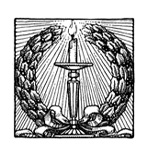
The Story of MAC 68-218
OPERATION BABYLIFT
In the greener days of youth, I decided one evening to test my father’s contention that the local broadcast television station ceased transmitting at midnight. What does the screen look like, I wondered, when that happens? Learning the answer would involve a flagrant violation of bedtime rules, so the research could not be undertaken without some element of risk. The action compelled a surreptitious egress from the bedroom I shared with my brother to the living room, where our console television stood in regal splendor.
Accomplishing that without incident, I turned the television on just as the station’s sign-off featurette began. My timing was fortuitous, for it was then, in front of the huge black-and-white screen, with the volume as low as possible, that I first heard John Gillespie Magee Jr.’s immortal poem “High Flight.” Its verses served as the audio track for the sign-off film’s depiction of a solitary aircraft in clear-sky, high-altitude flight. Though occasionally adulterated by an intrusive score, nothing detracted from the featurette’s felicitous combination of word and image. I can still see the aircraft flat-climbing into a darkening twilight sky; I can still hear every consonant of the closing stanza become word, every word effortlessly flowing into reverent thought, and thought into prayer:
Up, up the long delirious burning blue
I’ve topped the wind-swept heights
with easy grace,
Where never lark, or even eagle flew —
And, while with silent lifting mind I’ve trod
The high untrespassed sanctity of space,
Put out my hand and touched the face of God.
There is something of instant, intuitive appeal in those lines. One need not be an aviator to understand it; anyone who has experienced high flight from the window seat of a quiet, pre-9/11 trans- or intercontinental passenger flight will appreciate the sublime truth of its perspective. Even the most jaded agnostic can appreciate the imagery of the awestruck pilot’s outstretched hand. Perhaps no circumstance is more indicative of the poem’s widespread appeal than the frequency with which Magee’s lines appear on the tombstones of American aviators. As a memorial, it remains particularly fitting — no more so than for its author, who was himself the victim of a flying accident over Lincolnshire, England, in 1941.
In the intervening years, the words have often been used in the memorial context of aviation tragedies. Many readers will no doubt remember President Ronald Reagan’s eloquent eulogy of the Challenger crew. Certainly, in the consideration of appropriate remarks for such circumstances, a speaker could choose far worse than “High Flight” as a reference. Yet among some particularly grievous aviation tragedies — e.g., those that involve the loss of many lives, particularly the lives of children — Magee’s words can seem incongruent.
+++
This year marks the fortieth anniversary of such a tragedy: the crash of an American Air Force C5A Galaxy transport aircraft at Tan Son Nhut Air Base in South Vietnam on April 4, 1975. The flight was the first sortie dedicated to Operation Babylift, a mission organized to airlift South Vietnamese orphans to the U.S., where they would be adopted by waiting parents. President Gerald Ford had authorized the Air Force to participate in the airlift, and the Air Force came through in a big way: The first sortie would be undertaken by an eastbound C5A, which at that time was the largest aircraft in existence.
You May Also Enjoy
What Is a Pope's Proper Political Role?... An Absurd Fixation... An Article That Shouldn't Have Been Written... Perseverance in Poorly Chosen Vocations... Doing the Opposite... The Folly of the New Hegemony
My ecumenically minded Protestant friend John Armstrong notes that we hear a lot about millennials…
The world of the disabled is a constantly changing obstacle course with endless hurdles. Every day provides an opportunity for heroism, largely unsung.

